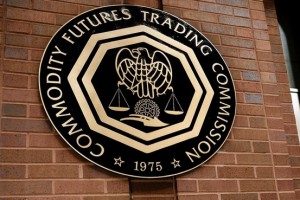There is presently a disagreement among federal courts as to the scope of the Commodity Futures Trading Commission’s (CFTC) anti-fraud and anti-manipulation authority under the Dodd-Frank Act. The CFTC’s primary focus has always been on swaps and commodity futures contracts governed by the Commodity Exchange Act (CEA). However, the CFTC has also historically had anti-fraud and anti-manipulation enforcement authority as well relating to transactions that involve actual purchases of a commodity, such as precious metal sales of gold coins. See CEA Sections 4b; 6(c)(3); 9(a)(2).
The Dodd-Frank Act in 2010 provided the CFTC with authority over the aforementioned actual purchases of commodities. Specifically, Congress added CEA Section 6(c)(1), which prohibits manipulative or deceptive devices or contrivances, and the CFTC subsequently adopted Rule 180.1(a), which implements Section 6(c)(1) and prohibits any manipulative device, scheme or artifice to defraud. The language was similar to the broad language used in the Securities and Exchange Commission’s Rule 10b-5.
 Over the last decade, the CFTC has forcefully asserted its new powers in a variety of cases, including alleged fraud in actual commodities sales as well as virtual currencies. Now federal courts are questioning whether the CFTC has overstepped its bounds.
Over the last decade, the CFTC has forcefully asserted its new powers in a variety of cases, including alleged fraud in actual commodities sales as well as virtual currencies. Now federal courts are questioning whether the CFTC has overstepped its bounds.
In May 2018, a California federal district court rejected the CFTC’s contention that the agency has anti-fraud authority in connection with the sale of actual commodities “in the absence of [an] actual or potential market manipulation.” CFTC v. Monex Credit Co., 311 F. Supp. 3d 1173, 1189 (C.D. Cal. 2018), appeal docketed, No. 18-55815 (9th Cir. June 20, 2018). In Monex, the CFTC alleged that the defendants had defrauded retail customers in who were buying precious metal coins and bars. The CFTC invoked CEA Section 6(c)(1) and CFTC Rule 180.1(a) and pointed to the language that the provisions covered any sale of any commodity in interstate commerce. Monex argued that the CFTC’s anti-fraud authority did not reach the sale of precious metals.
Unfortunately, the district court sided with Monex because the transactions met the “actual delivery” requirement such that CEA Section 4b did not apply and also found that the plain language of the laws and rules require that the anti-fraud authority must be connected to instances of market manipulation.
This ruling obviously could have a major impact on current CFTC cases and investigations targeting fraud in connection with the physical sale of precious metals. As such, it is being appealed and fortunately, other federal district courts have made it clear that they disagree with this ruling.
In CFTC v. McDonnell, No. 18-CV-361, 2018 WL 3435047, at *2 (E.D.N.Y. July 16, 2018), denying reconsideration in CFTC v. McDonnell, 287 F. Supp. 3d 213 (E.D.N.Y. 2018), the New York federal district court expressly rejected the Monex reasoning, finding that the law prohibits manipulation or fraud standing alone and that there does not need to be both in order for a claim to be made.
Similarly, a Massachusetts federal district court rejected the Monex analysis in CFTC v. My Big Coin Pay, Inc., 334 F. Supp. 3d 492 (D. Mass. 2018), holding that the CFTC’s anti-fraud enforcement extends to virtual currency transactions absent allegations of manipulation.
 The Eleventh Circuit also found fraud liability in the absence of market manipulation under Section 6(c)(1) and Rule 180.1(a) in CFTC v. S. Tr. Metals, Inc., 894 F.3d 1313 (11th Cir. 2018). The CFTC alleged that the defendants had defrauded customers in violation of CEA Sections 4b and 6(c)(1) and Rule 180.1. The defendants had allegedly promised to invest customers’ money in precious metals, but instead invested funds in metals derivatives without informing customers and charged them fictitious storage fees.
The Eleventh Circuit also found fraud liability in the absence of market manipulation under Section 6(c)(1) and Rule 180.1(a) in CFTC v. S. Tr. Metals, Inc., 894 F.3d 1313 (11th Cir. 2018). The CFTC alleged that the defendants had defrauded customers in violation of CEA Sections 4b and 6(c)(1) and Rule 180.1. The defendants had allegedly promised to invest customers’ money in precious metals, but instead invested funds in metals derivatives without informing customers and charged them fictitious storage fees.
Hopefully, for whistleblowers and victim customers, the Monex appeal will result in a reversal in line with the majority of other district courts and Eleventh Circuit cases that have rejected the Monex reasoning so that companies can be held accountable for committing fraud in connection with all kinds of commodities sales. Should the Ninth Circuit affirm Monex, then the CFTC’s efforts to stifle fraudulent conduct will be unnecessarily stifled.


